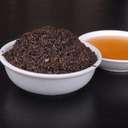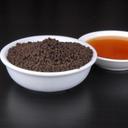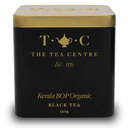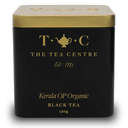Australian Sencha
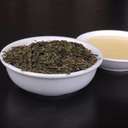 |
|
Commercial Description
Grown in Wangaratta, amongst the Victorian Alps, this full-bodied Australian green tea shares similar flavour properties to Japanese Sencha but with a softer vegetal flavour that is slightly sweeter on the palate.
Ratings & Reviews
Page 1 of 1 page with 1 review
 80 Aroma: 8/10 Flavor: 4/5 Value: 3/5
80 Aroma: 8/10 Flavor: 4/5 Value: 3/5Whiskey (45 reviews) on May. 4th, 2020
I know this might sound like a strange criticism, but I think that the worst thing about this tea is that it's been labeled "sencha." I say this because the profile of this tea in terms of taste and scent doesn't match the ideal for a sencha. But, it has a very good, very unique profile, in my opinion. The disappointment is more in having it be called "sencha" when that term doesn't match the drinking experience.
In my experience, a good sencha is mostly vegetal, sometimes with a hint of green/grassy notes, if you brew it really well, you can get a slightly buttery quality in the first cup (if you brew it more than once), and there's a slight bit of astringency and bitterness to round it off.
This tea is very different. Rather than being vegetal, the most prominent note is mineralic. The only other tea I've tasted with a mineralic note like this is Chinese Dragonwell or Chinese Bi Luo Chun. But, that's just for the sake of comparison. The mineralic note in this tea is much stronger and a bit more rough. There's a butteriness if you brew it well that is even stronger than a sencha tends to be. There is a vegetal presence in the tea, overall, and some bitterness and astringency. But, the experience of this tea is very different than any Japanese sencha teas I've had.
After I got past the fact that this felt as if it were 'not as advertised' for being called a "sencha," I actually really enjoyed this tea. It's reliably good, it's more tough than a sencha, less delicate, and has a more dynamic presence. It's also unique -- not only have I not tasted a sencha like this before, even other green teas don't have the same strongly mineralic note that this tea has.
Overall, I'm glad that I gave this a try. In fact, I wish I could get more. But, as I understand it, you can't get this outside of Australia, and they don't have shops in my home country. If you stop in Australia (or know someone there or who is stopping by), get them to pick some of this up. It's a great experience, to understand the diversity of tea. But, just don't expect a Japanese-like sencha, because this Australian "sencha" is a whole different animal. Really the only thing that I didn't like was expecting one thing and getting another. Once you get past that, it's a really good tea.
Page 1 of 1 page with 1 review


